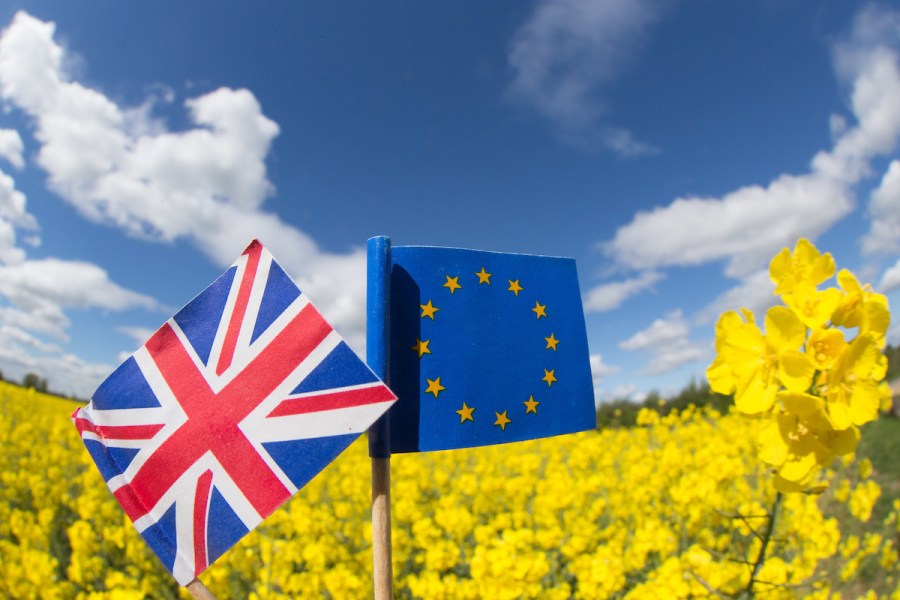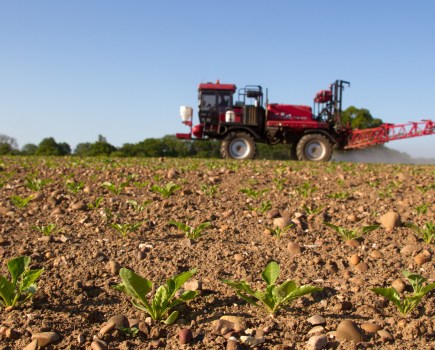Whether you were a firm Bremainer or Brexiteer, a lot of water has passed under the bridge since the vote on 23 June 2016. For UK agriculture, the lack of news on trade deals and the future of food production is starting to cause concern, so to get a better understanding of what farmers really think about Brexit, CPM put it to our readers to give their views on everything from business resilience to tariff free markets.
There has rarely been a day when speculations regarding the future of the UK post-2020 haven’t made the headlines. But despite only being a few months away from the official departure of the UK from the EU, there is still very little known about what post-Brexit Britain may look like. So what do farmers think about the situation?
Business-planning
Although the Agriculture Bill has hinted at what the industry can expect once we depart from the EU, 82% of those surveyed believe there is not sufficient clarity in the Bill to allow them to prepare their businesses.
In agreement with this is, Yorkshire farmer – Richard Hinchliffe – who says more detail is required to give farmers a better idea of what is likely to lie ahead. “It’s all a bit woolly – we need some detail. Going forward, a Bill that allows farmers to take a sensible, pragmatic view on regulations would be very useful.”
In contrast, East Yorkshire farmer Paul Temple disagrees and believes that – regardless of the Agriculture Bill – the direction for the sector was clear right from the start. “We knew there and then we’d never trade with the EU on the same basis again,” he says. “It was inevitable that any future trade would be at an extra cost to the UK and would reduce the value of our products.”
With such a large proportion of farmers perceiving lack of clarity within the Bill, it comes as no surprise that a further 55% of farmers do not believe their business prospects will be improved after March 2019.
To help businesses keep thriving post Brexit, Paul reckons a change in tactics is needed. “We have to become more supply chain and customer minded. The poultry sector is a great example of how farmers have worked out what is needed, who it is needed by and how much they want.”
Trade
Theresa May has famously said no deal is better than a bad deal, but what exactly would a good deal look like for UK agriculture? Over half of participants (51%) believed any future trade negotiations should include remaining in a customs union while 53% would support a tariff-free market for all agricultural products. “In an ideal situation remaining in the customs union would make life a lot easier,” says Paul.
However, Richard believes that still being bound by the rules of the EU – in terms of trading – would defeat the whole objective of Brexit. “If we remain within the customs union then we can’t do free trade deals.”
While more than 50% of farmers supported free markets, it could dilute standards of produce available in the UK, warns Paul. “For it to work, the government would have to ensure that anything banned in UK practice would be reflected in imports. For example, if certain pesticides are banned in the UK then anything coming onto the market should adhere to that ban.”
The difficultly in negotiating future trade agreements is clear from the lack of news regarding confirmed deals. Respondents were split on whether being outside the EU will make it easier to achieve new export deals – with 45% on each side.
“What we need to remember is that as part of the EU we have one body making the rules for 28 countries,” says Paul. “I don’t believe we have got enough trained experts in the UK to forge good deals with so many different countries.”
Resilience
While there’s still much to debate in terms of the final direction of Brexit, it is clear that things are going to change. Encouragingly, the survey revealed that 48% of farmers believe that UK farming will become more resilient after March 2019 and 47% believe their business is resilient enough to withstand a bad withdrawal from the EU.
“I’m hopeful that UK agriculture has a long future and that farmers will be rewarded for the work they do both in terms of food production and environmental stewardship,” says Richard.
Despite originally being firmly in the ‘remain’ camp, Paul now believes there is a unique opportunity to reshape agricultural policy. “Businesses won’t have any choice but to become resilient. This is a chance for farmers to take a real strategic look at where they want to be and where they are going to be in 5-10 years’ time.”
SURVEY RESULTS





